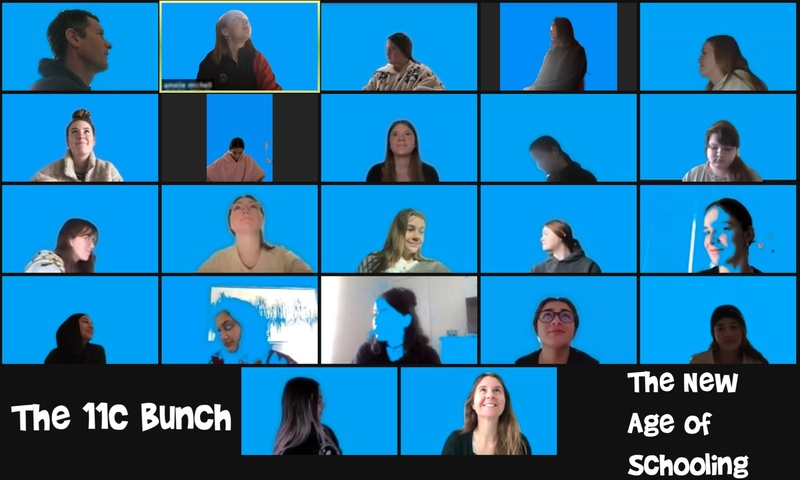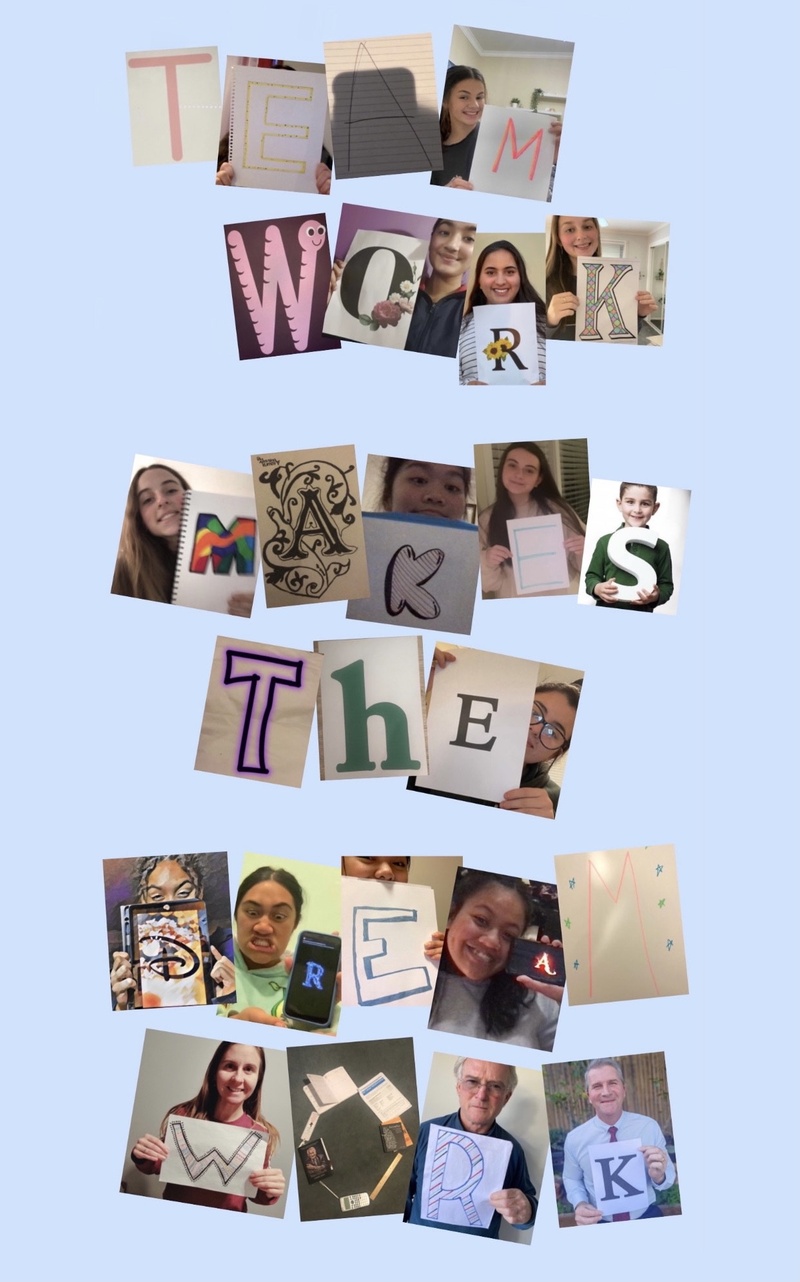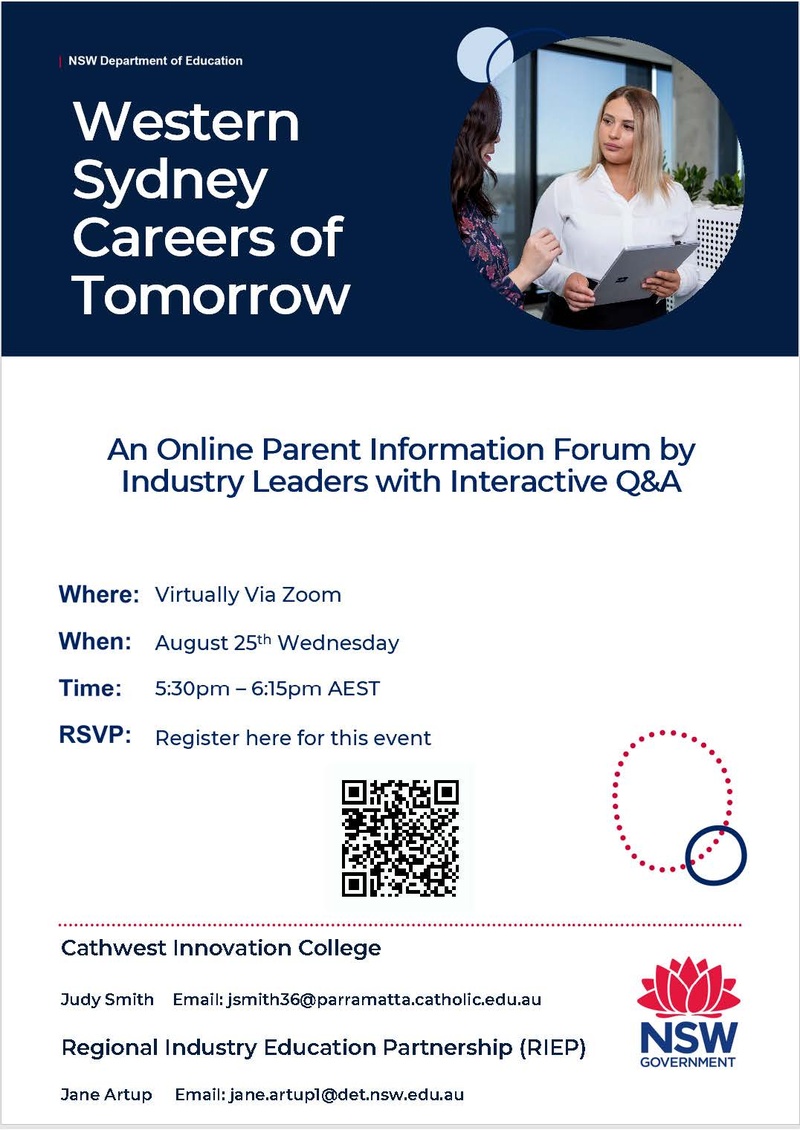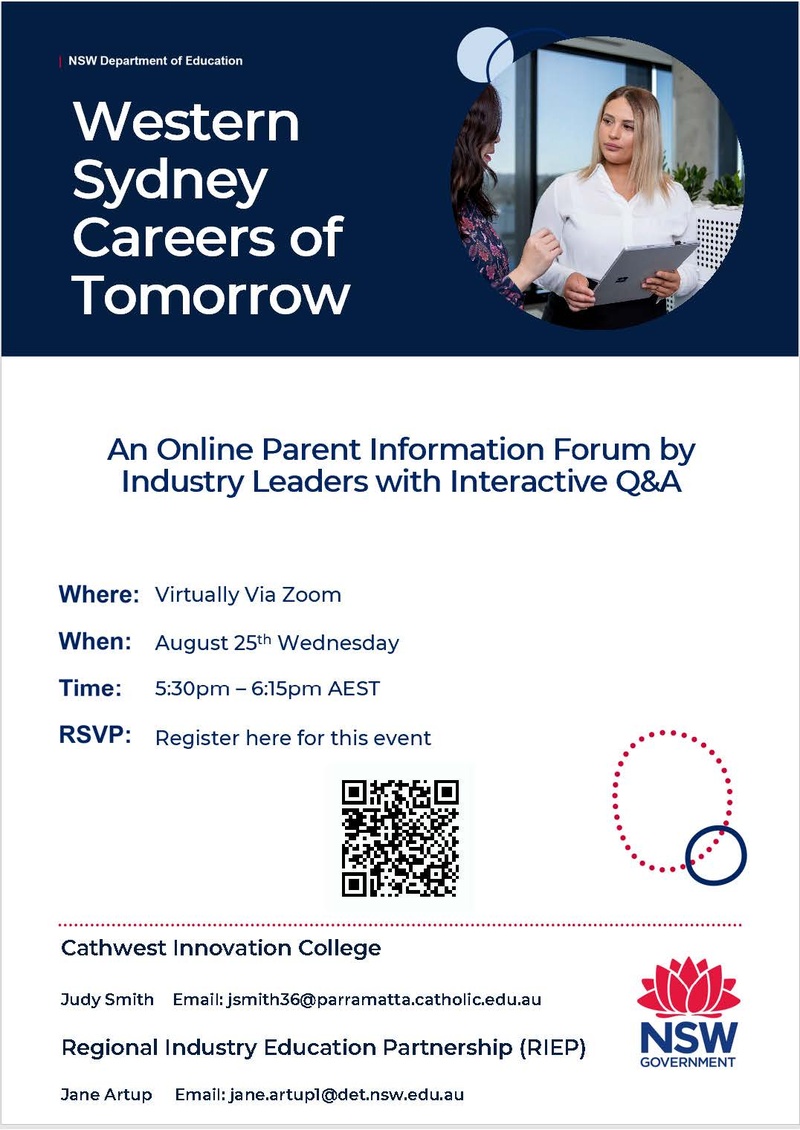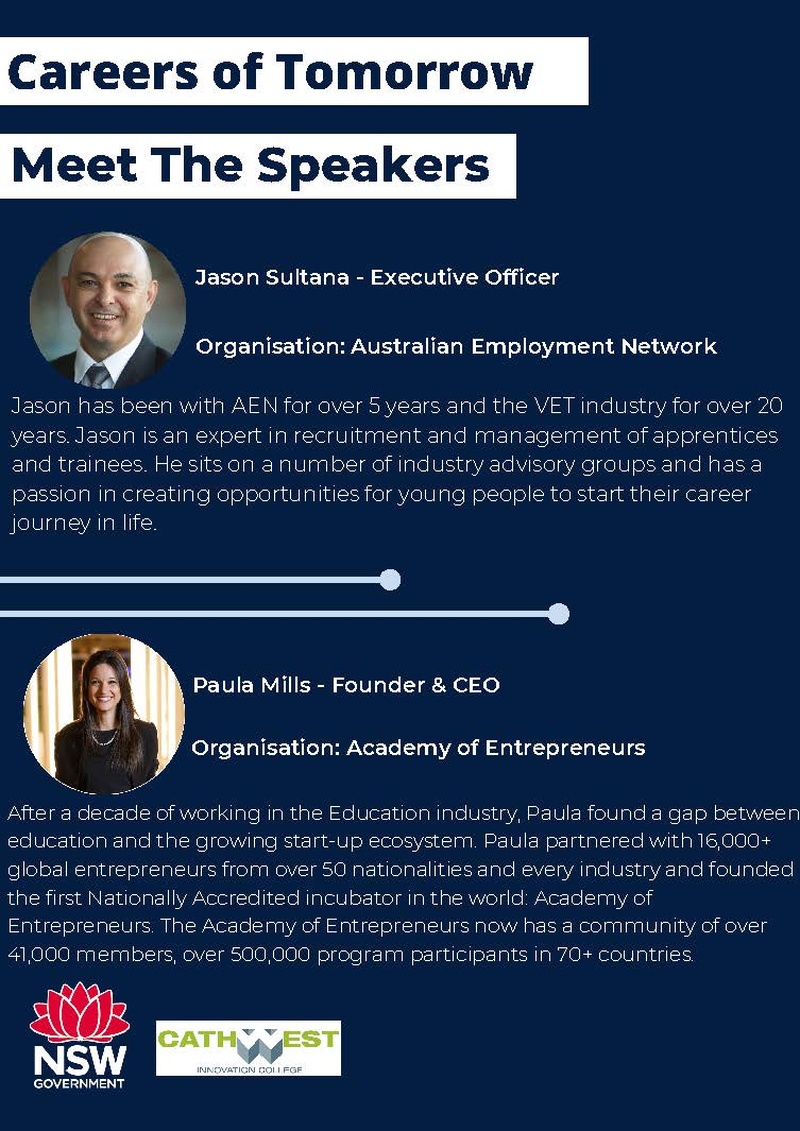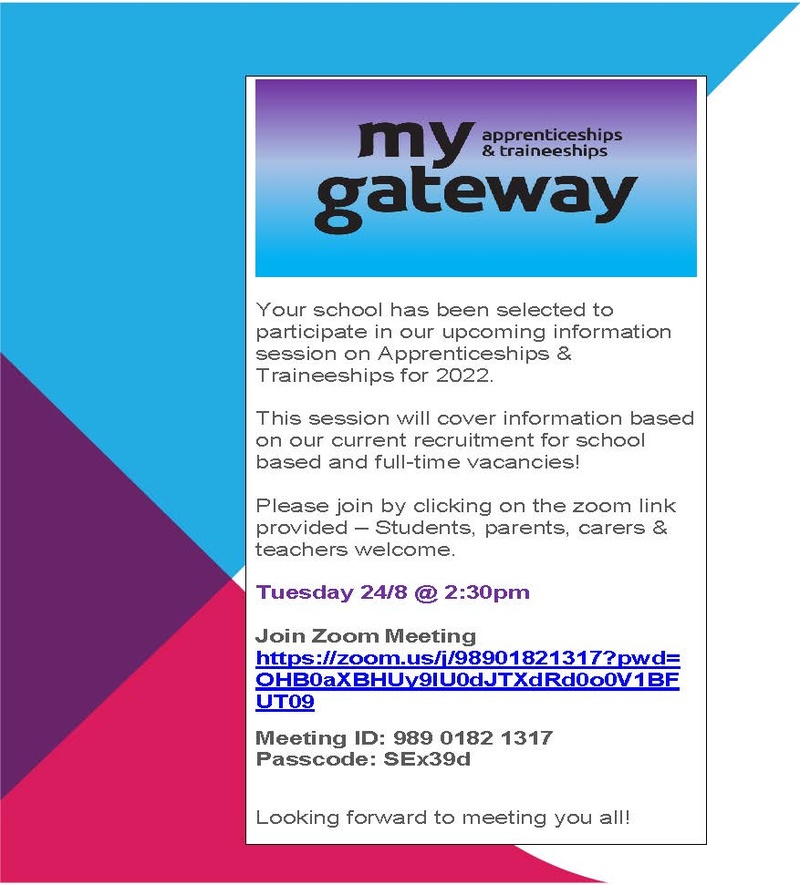From the Principal
Message from the Principal
Dear Parents and Friends of St Patrick’s College
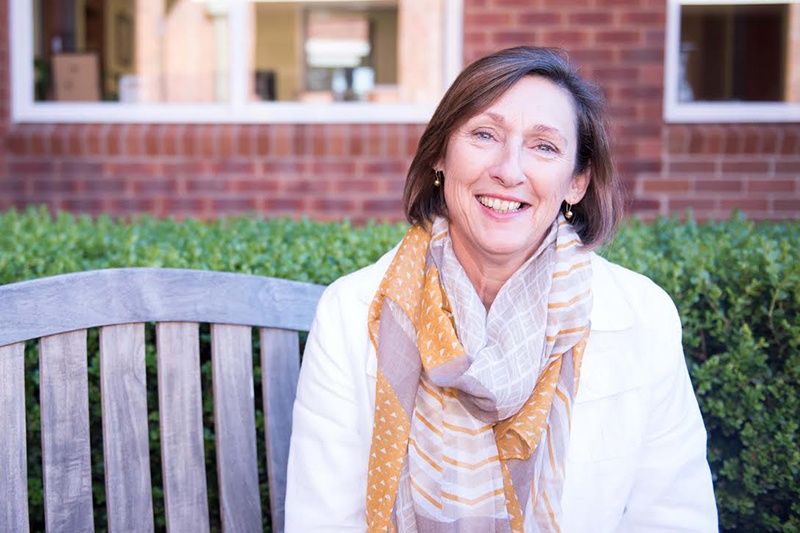
Sue Lennox - Principal
As this edition of the Inside Out comes your way we find more and more of the States across Australia are having to impose lockdowns and stay at home orders to protect their citizens from contracting this deadly variant of COVID-19. In addition to this, we have all schools in New South Wales now classified at level 4, which means all students are to be learning remotely unless their parents are essential workers.
One of the continuing difficulties for each school, in this situation, is keeping their students connected and engaged whilst they are working from their home and relating to others through their screen. We had a great assembly this week, where all the homerooms chose an interesting background and competed with each other to be the most interesting and entertaining, as nominated first from their year group and then across the College. We had girls placing themselves in bathrooms, with shower caps on to add to the detail, girls in early morning Bunnings backdrop, girls coming from the sunny shores of a pacific island, girls with the same colour T shirt on and so many more funny images. They had so much fun creating their theme and then competing against each other to be the winner. The winning homeroom was 9E, Mrs Samyia's with the "Bathroom Beauties", but really they were all winners!
With our new timetable implemented this week, we have reintroduced some activities options. Students could opt for 30 minutes doing Mindfulness, Cheer, Sport, Pet Catch Up, Debating, Creative Group, Photography, Dance , Bookclub and Anime, to name a few. In addition to this, during Pastoral period on Tuesday, the girls have made a piece of art, a rainbow, based on a delightful book they read in class called The World Made a Rainbow. All of these activities and diversions are in place to assist girls to connect to their community, even if they are spread out across over 700 homes in the Macarthur area.
Shortly, the Year 12 girls will finish their Trials and staff will begin marking their assessments. It was a new step for all in our community to complete assessments online and I must acknowledge the work of the Year 12 teachers, their Coordinators, Eileen Kelly and her team and Josh Combes and the IT team for the extraordinary support, which enable it to go ahead smoothly for all. The girls had their exam booklets driven to their homes by support staff, so that they could be sure to have all the resources they needed at home in time for their exams. It was a big job, but very worthwhile, for the peace of mind it brought the girls.
Finally, I would like to acknowledge the work you are doing as parents and caregivers of our girls in this difficult time. Thank you for the support you are giving your daughter and then for keeping us informed of how she is managing the work and the isolation. Thank you for the very generous and kind feedback you are giving our staff, as they work to provide the very best to the girls. Thank you for graciously seeking out clarification and confusion when it arises. I have noticed increasingly in the broader community, people are jaded and weary, which often presents as angry and aggressive, but none of that is present in our community. We are very fortunate to have a community that is caring, forgiving and collaborative and that recognises that we will get through this together, assisting and supporting each other along the way. We are all doing our best.
I will leave you with a brief reflection on community.
Blessings
Sue Lennox - Principal
My God I could not see.
I sought my soul,
My soul eluded me.
I sought my brother/sister,
And I found all three.
Mission
Stewardship is Heart Work
This year, our year of Benedictine Stewardship, our catchcry has been “stewardship is heart work”. Essentially, stewardship is about caring. Let us care for the earth and care for each other—especially in this time of isolation and the challenges that imposes on each of us.

Some people may express the belief that, “God will save me from the pandemic.” This statement and the type of belief it expresses is worth serious examination. As a believer in a God of Love, it appears to be a reasonable statement and belief. A deeper analysis however leads us to a clearer understanding of the way God interacts in the world. Firstly, it must be acknowledged that the COVID-19 pandemic is not God’s doing. Rather, the pandemic is the consequence of human actions. It is offensive to hear the opinion that God punishes human evil by sending a pandemic (and if it is not a pandemic, then it is an earthquake or a tsunami or a flood or ... a whatever). Disastrous events happen. They are the product of an imperfect world which operates on certain laws of nature and physics. When Jesus explained that “God makes the sun rise on the evil and on the good, and sends rain on the righteous and on the unrighteous” (Matthew 5:45) Jesus was making the point that God is merciful and kind, patient and forbearing, rather than being a god of anger and revenge.
After a disastrous event, some people ask, “Why did God allow this to happen?” The premise of this question is that God is meant to control all aspects of life. This is not how things are. God is a god of tenderness. God does not force himself on anyone. God waits for us to invite him into our life. According to Psalm 145, “the Lord is gracious and merciful, slow to anger and abounding in steadfast love. The Lord is good to all, and his compassion is over all that he has made” (Psalm 145:8-9). Anything that is not freely offered and freely received cannot be an act of love. Love is always a free choice to do that which is good. Whenever a person acts lovingly, she/he is making God present because “God is love” (1 John 4:8). The converse of this is that whenever we act unlovingly, we are excluding God and no longer acting as God’s instrument of good in the world. This year, with our St Patrick’s community’s focus on the Benedictine value of stewardship, we have been using St Teresa’s Prayer as a theme song. These are some of the words of the song: “Christ has no body now but yours, no hands, no feet on earth but yours. Yours are the eyes with which he looks compassion on this world; yours are feet with which he walks to do good.” St Teresa knew full well what it means to be God’s instruments of love in the world.
Saying and believing that “God will save me from the pandemic” is a way for a person to avoid taking responsibility for doing one’s part in addressing the situation. It is a cop out to hand over to God all responsibility for all things. We are in partnership with God. The Old Testament word for this is “covenant” (meaning a pact, an agreement, a contract, and also a “testament”). The covenant has both rights and responsibilities—each party to the covenant has to do their part. This is the way of love. Giving and taking. Love is a verb, and an active one at that. Love is not only to be passively received—it is much more about actions. Acts of generosity, acts of compassion, acts of kindness, acts of care, acts of mercy, acts of peace, acts of acceptance ... all actions that express love. It may appear that we are having to climb a mountain given our current collective circumstances. However, through prayerful support and words of encouragement, we can lend each other a “virtual helping hand”.
Let us continue to care for one another through the “heart work” of stewardship.
Angelo Gattone - Mission Coordinator
Learning and Teaching
Koshigaya Campbelltown Virtual Youth Exchange
With international travel bans and the inability for students to do the annual Campbelltown Koshigaya Youth Exchange, this year the Campbelltown Rotary Club has organised a Virtual Youth Exchange program to be held this Saturday 21 August 2021 via ZOOM.
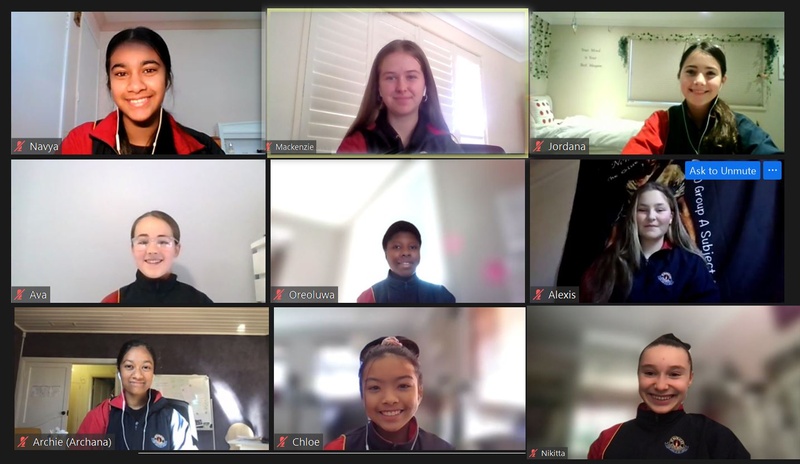
Koshigaya Virtual Exchange 2021
Nine students from Years 8 and 9 will be participating in this opportunity where they will meet students from Koshigaya and spend some time talking about their interests and the attractions in the area they live. Conversations will be in Japanese and English and will give the students a chance to use what they have learnt in class.
It is hoped that further opportunities will develop from this for other students in our College in Term 4. We wish the nine students all the best this weekend and hope international friendships may develop.
Julian Nash - LOTE Coordinator
Senior School
Year 11 Homeroom's Spin off to ‘Challenges’
Like all students, the Year 11 cohort have been navigating the trials and tribulations of Remote Learning whist in the final term of their Preliminary Year. The word challenge can be seen from different perspectives. As a negative block, something demanding or to overcome or when positive as growth, transformative and eye opening. Either way you look at it, we must continue to work through these challenges to move through the ebbs and flows of life.
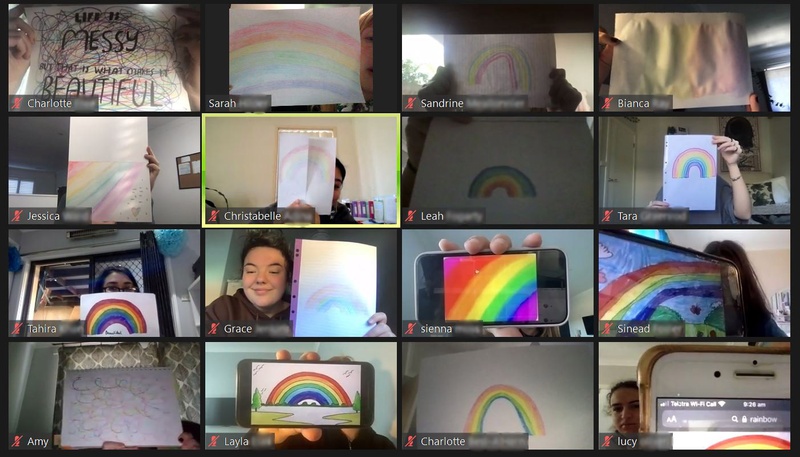
11A - We are Rainbows
Although it has been tough, there has been sparks of laughter and joy when each homeroom comes together to work through an activity as a collective. “Although together, apart” and “We are all in this together” are some common catch phrases we have heard on this journey. I put the girls to the ‘challenge’ to come up with a positive, uplifting message to bring more delight into their day. I hope you enjoy looking at these images, as much as the girls did creating them.
Maria Boulatsakos - Year 11 Coordinator
Year 10 History - Vietnam War Theatrical Incursion
Brett Hunt brought his ‘Dusted Off’ one-man show back to St Pat’s towards the end of Term 2 to perform to the Year 10 History students.
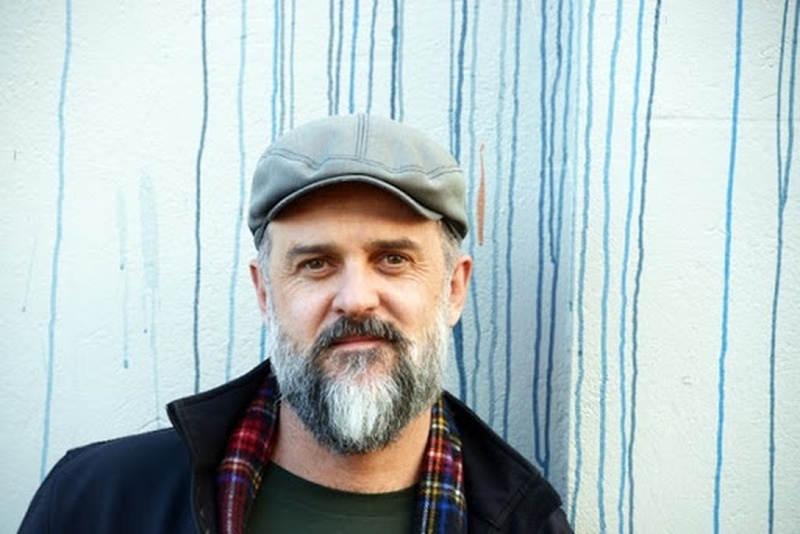
Brett Hunt
As the son of Frank Hunt in the well known song ‘He was only Nineteen’ he both educated and entertained the girls for the duration of the performance. At the conclusion there was a Q and A session where the girls asked mature and well thought out questions.
“We were lucky enough to see Brett perform his dusted off performance, it was interesting and easy to understand. His performance was emotional at times but it made the story more intriguing. It was a very smart idea of how to present the story and you could tell it was personal to him which made it more important to us. I got to learn a lot about the experiences of the soldiers at war and about the landmines that were stolen from the Australian mines and used against them. The effect of his instruments and voice was really effective and kept the audience paying attention at all times. Overall the performance was amazing and really engaging, the storyline was good and easy to understand and I would watch it again if I could.” Madison B
“I learnt a lot about what happened behind the scenes of the war and the things that we don't get told very often, so rather than repeating the same facts he spoke about the emotions the soldiers felt, and the connections they made. I also learnt about the type of warfare and the constant fear they had while waiting; it was interesting to understand how the war progressed and what went on not only in the war but also in the soldiers lives.
I think the fact that it was a very personal story really touched everyone and made them a lot more aware of the impacts war has had on soldiers and their families. I really enjoyed the music and it complimented the story perfectly.” Charlotte M
Kirrily Cousins - HSIE Teacher
College Library
Celebrating Literacy and Numeracy Week 2021
In celebration of Literacy and Numeracy Week 2021 the Library team have created an Alice in Wonderland Digital Escape Room for all staff and students, from all year groups, to enjoy.
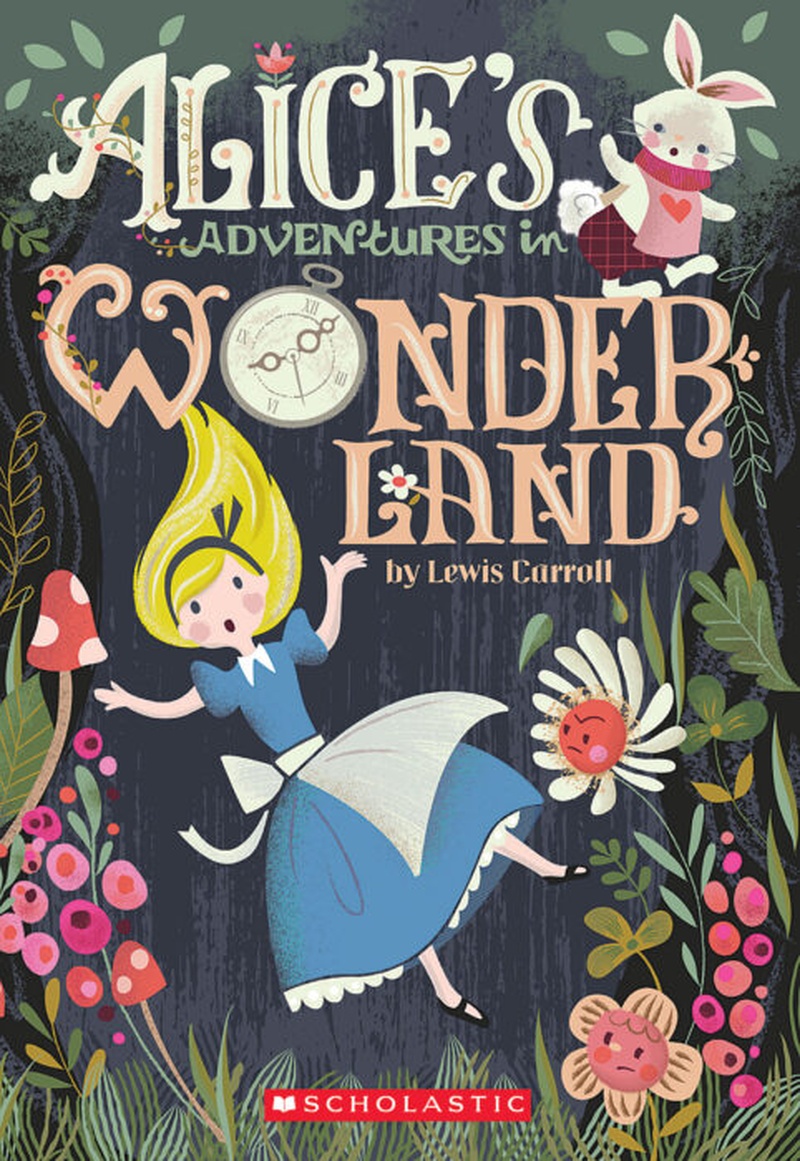
Celebrate Literacy & Numeracy Week with our digital escape room
Based on the story of 'Alice's Adventures in Wonderland', by Lewis Carroll, but with a distinctly St Pat's flavour, our digital escape room will take you on a journey through Wonderland.
Along the way you'll meet many colourful characters from the books and movies. Curiously, you'll also come across a few St Pat's teachers there as well.
To progress all of the way through and 'escape' the room you'll need to read the story and solve all of the word and number puzzles in order (but don't worry you'll get unlimited attempts).
Curious to give it a go? Of course you are!
The Alice in Wonderland Digital Escape Room will be available on Canvas from Monday 23rd August. Just look for the Alice in Wonderland - Literacy and Numeracy Week 2021 course.
Good Luck! We hope you enjoy your journey through Wonderland and try not to lose your head!
The College Library
Issues in Society Publications
Issues in Society titles are topical, cross-curricular resources which are used extensively in Australian secondary schools, TAFE colleges, universities and public libraries.
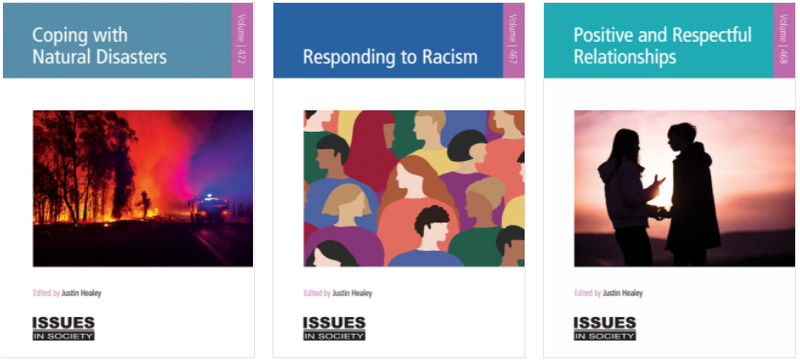
Just a few of the new Issues in Society publications.
Issues in Society is a publication focusing on Australian current topics and trends. Each book in the Issues in Society series targets a specific social issue or controversial topic, and comprises a thoroughly researched compilation of the latest news, facts, statistics and commentary from trusted sources.
The College Library's subscription to this fantastic resource includes both physical and digital formats. Physical copies of Issues in Society can be borrowed from the Library, and digital copies are available to all St Patrick's students, anywhere and anytime, via the College Library website (look for the 'Issues in Society' button on the Library homepage).
The most recent Issues in Society topics include: Responding to Racism, Unemployment and Underemployment, Positive and Respectful Relationships and Coping with Natural Disasters.
The College Library
Careers
Careers of Tomorrow - Online Parent Information Forum
My Gateway Information Session
My Gateway Information Session on Tuesday24 August at 2.30pm
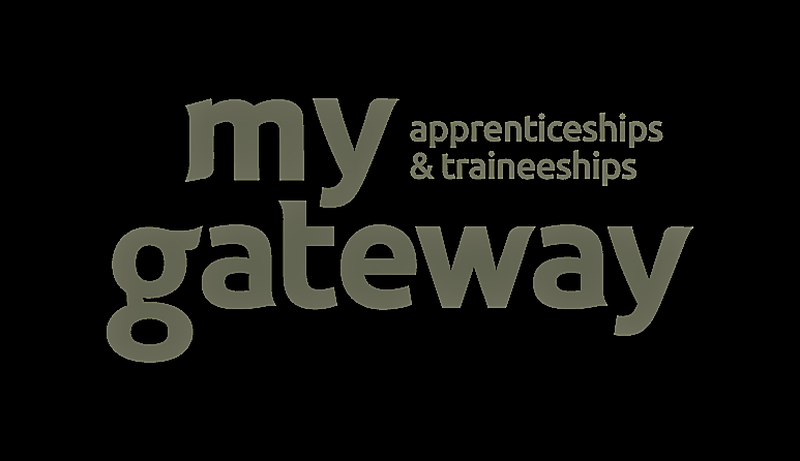
My Gateway is inviting students, parents, carers & teachers to participate in an upcoming information session on Apprenticeships & Traineeships for 2022.
This session will cover information based on current recruitment for school based and full-time vacancies.
To join the session on 24 August, simply click on the link below:
https://zoom.us/j/98901821317?pwd=OHB0aXBHUy9lU0dJTXdRd0o0V1BFUT09
Meeting ID: 989 0182 1317
Passcode: SEx39d
Community News
Instilling Hope In Uncertain Times
Although life is always filled with uncertainty, the levels we are currently experiencing are unprecedented and immense. It appears that lockdowns and tighter restrictions will be with us for some time and this is taking a toll on our young people.
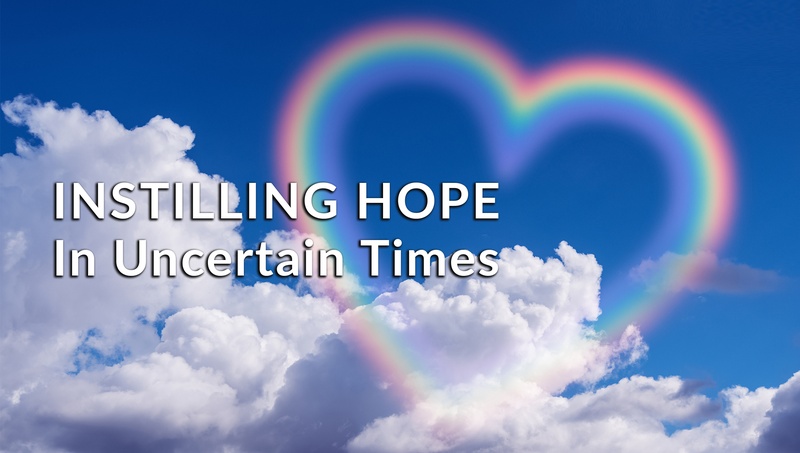
With continued disruptions to education and isolation from peers and family, mental health concerns are on the rise, and it is evident that many young people may need some extra support to achieve their goals. Adult carers can help instil hope in such times of uncertainty by ensuring young people remain connected with their social networks, encouraging them to see life as it is and focussing more on the things they can control, rather than those they can’t.
Over the centuries, the human race has faced significant adversity for prolonged periods of time and often emerged stronger and more determined. Therefore, it’s important not to give up hope and remain optimistic. By keeping the lines of communication open and listening, parents can help young people reframe their worries and put the disruptions into perspective. It is important young people make a conscious effort to focus on the good bits, rather than fill in the blanks with catastrophic narratives.
This Special Report outlines how adult carers can help instil hope and offer support in such times of uncertainty. We hope you take time to reflect on the information offered in this Special Report, and as always, we welcome your feedback.
If this Special Report raises any concerns for you, a loved one or the wellbeing of your child, please seek medical or professional help.
Here is the link to your special report https://saintpatricks.nsw.
Some key tips from the presentation: For your daughter
1. Keep the lines of communication open
2. Help them to reframe their worries and put them in the broader context of what is happening
3. Encourage them become observers of their thoughts rather than ’slaves’ to them
4. List what they can and can’t control and focus only on what they can and talk this through
5. Take action – ensure they have structure to their day and keep as many routines as normal as you can – e.g., mealtime, sleep, exercise as well as the school day – lessons and breaks
6. Ensure you take some “me time” for yourselves – time to ‘de-escalate’ your own nervous system
A tour through the teenage brain: Free Webinar with Dr Jared Cooney
Join the next free The Parents Website Webinar, with renowned neuroscientist and educator Dr Jared Cooney Horvath, on how parents and carers can support the teenage brain.
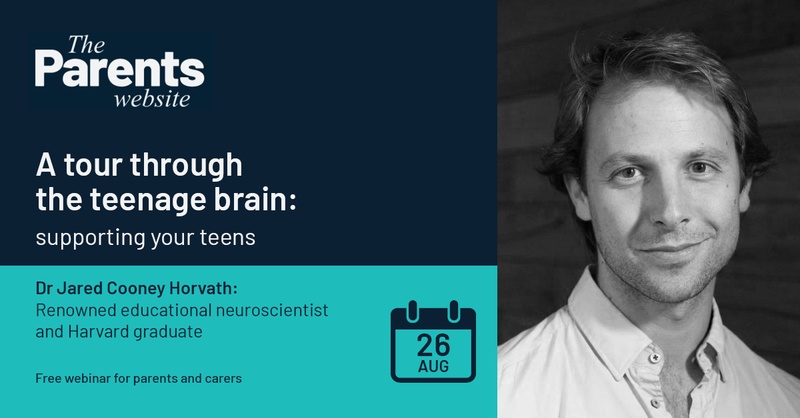
Image from The Parents Website
What’s going on with your teenager?
Sometimes they’re bored, disengaged, and unmotivated. Other times they’re risky, unpredictable, and emotionally volatile.
During this webinar, Dr Jared Cooney Horvath will explore the brain, how it develops, and how things change during adolescence and early adulthood. Through fun, interactive activities, parents, carers (and even their young people!) can learn how (and why) teenagers think differently than adults and consider ways we can support them academically, emotionally, and cognitively.
Webinar details
Date: Thursday 26 August 2021
Time: 7:00 pm to 8:00 pm
Please click on the link below to register your attendance. An email with the link to the webinar will be sent out closer to the date.
Click here: Registrations are limited and essential.
A note from Dr Jared: While this webinar is for parents and carers, young people might gain some valuable insight into how their brains are changing.
Stay calm and carry on: A family survival guide
Parents and kids are facing some struggles in our stay-at-home lives. Experts have been asked for some practical tips and advice to help, this article is taken from part of The Parents Website series.
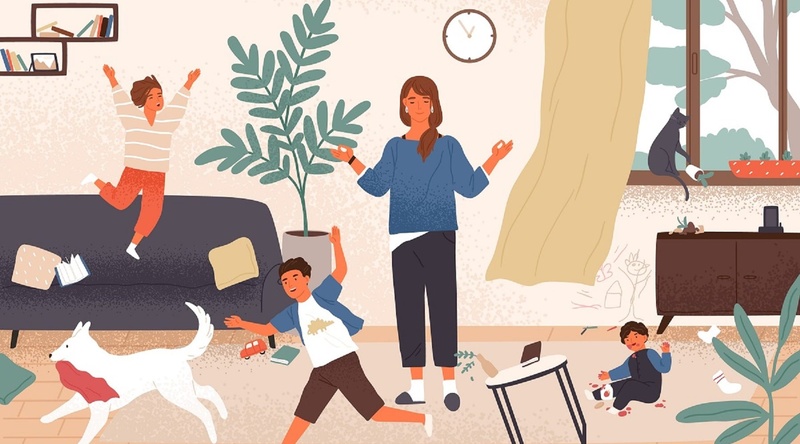
Image from The Parent Website
Coronavirus has enlisted us all in a giant social experiment, where the work, family and social lives we’ve known have been tipped on their heads. Add the responsibility of learning at home to the mix, and the uncertainty and anxiety can feel overwhelming.
Dannielle Miller, an expert in fostering resilience in teenagers and founder of Enlighten Education, says children are virtual ‘canaries in the cage’ of the pandemic, feeding off the mood in households that are experiencing stress around changes to work, income and social interaction. Tension will inevitably invade these new ‘classrooms’. Acceptance and understanding are vital.
‘There’s so much about this time that is making our kids very reactive,’ Dannielle says. ‘For young people the peer group is everything. That social connection that is such a big part of school, and of their happiness and wellbeing, we’ve completely stripped that away from them.’
Professor Lea Waters, author of the parenting book The Strength Switch, is living this first hand. Her University of Melbourne resident psychologist duties are being carried out from home, where she can hear her husband working in the next room, while her teenaged son and daughter are schooled under the same roof.
She hears parents airing their concerns – around getting their own work done, while managing the stress of households in upheaval, and teaching and policing their children without letting them fall behind in their learning.
In both practice and attitude, there are ways to ease the journey.
Tip 1: Routines and new rituals - including 'bonkers' time
‘As much as you can, set up a routine and stick to it,’ Lea says, adding that spicing this consistency with new rituals will feed the brain’s need to blend predictability with novelty. ‘The routine part gives us predictability and helps with our anxiety … but if it’s too routine we can become bored and tune out. So, create new rituals to give the brain some novelty.”
In her house this has included dining together every night, not just when previously busy schedules permitted, and family walks with the dog. For younger children, Lea advocates ‘bonkers time’ – a designated block each day for dancing, jumping about and generally going a bit crazy to release energy
Tip 2: Create zones at home
Our homes have been invaded by work and school. Because our brains attach certain rooms to specific functions, it’s important to be clear about what happens where in our temporary world.
‘Be really intentional about the geography in your house – where the kids do their school, where they relax,’ Lea says. ‘If they’re doing school all day in their bedroom, then at night they sleep there, it’s very difficult for the brain to unwind, because it starts to attach the bedroom to being a place of work.’
Labelling your zones – Mum’s ‘workstation’, ‘Mary’s school desk’ – is a useful trigger
Tip 3: Draw up a family contract - and maybe nominate a ‘humour ambulance’
Listing the strengths each family member brings to the table – who is a conscientious planner; who is more playful and flexible; who has strong IT skills, etc – can help build a powerful team dynamic. Lea suggests formalising this with a family contract that can be put on the fridge.
Her son has been nominated as the family’s ‘humour ambulance’, drawing on his capacity for making people laugh. Her daughter’s artistic flair has been utilised in creating signs for work stations and zones.
Tip 4: Cut each other some slack
Dannielle has never read a book on parenting during a pandemic, because none exists. She knows children won’t always see their parents in the best light through this time, and vice versa – and that’s okay.
‘It’s a good chance to humanise ourselves to our children, and it’s a really good opportunity – particularly for adolescents, to realise that closing themselves off in their rooms is really isolating, not just for themselves, but for other family members. It’s a chance for them to shift a little from that childish expectation that “my parents take care of everything”.’
Lea says we should give ourselves permission to be human, through having the conversation with our kids that it’s a tough time, we will lose patience, and that’s normal. ‘When that happens, take a deep breath, use the words ‘sorry’ and ‘that’s okay’.
‘It’s a chance to build resilience, and part of resilience is you fall down and you get back up again.’
This article was first published in April 2020. The Parents Website
